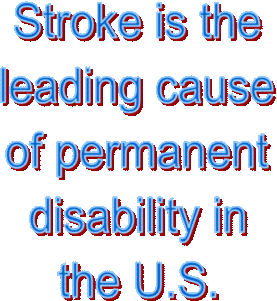
Stress absolutely can trigger a TIA, or transient ischemic attack, says John M. Kennedy, MD, medical director of preventative cardiology and wellness at Marina del Rey Hospital.
So if you’re at risk for a TIA, and especially if you’ve had a TIA, you’d better practice stress management.
“Stress comes in two varieties, acute or chronic,” says Dr. Kennedy, author of the book, THE 15-MINUTE HEART CURE: The Natural Way to Release Stress And Heal Your Heart In Just Minutes A Day.”
Acute stress is sudden in onset, like that experienced in a natural disaster, a heated argument or car crash.
Chronic stress is consistent, day in and day out, unrelenting stress like that experienced in a difficult relationship or a hostile work environment.
“Both forms of stress, whether acute or chronic, lead to a release of hormones, adrenaline and cortisol, which cause physiologic changes,” says Dr. Kennedy.
And once you get a TIA, or transient ischemic attack, you are at prime risk for a future stroke. In fact, the TIA can be a warning of an imminent stroke.

The physiologic changes that occur from stress, that can give rise to a TIA, are:
- Increased inflammation
- Increased heart rate
- Increased blood pressure
- Thick, sticky blood, “All of which create the perfect storm for a cardiac event, TIA or stroke by damaging the delicate inner lining of blood vessels,” says Dr. Kennedy.
Though there are people who have recovered completely from a stroke, or have had only a “minor” stroke, don’t let this comfort you.
About 750,000 people in the U.S. every year suffer a stroke, so certainly, out of this enormous statistic, there will always be some lucky people.
However, nearly 60 percent of stroke victims suffer permanent walking disability, and stroke is America’s leading cause of disability, and third leading cause of death by disease.
So if you’ve had a TIA, learning to manage your stress levels can save your life.
If you believe you’ve had a TIA, then get a complete evaluation as soon as possible.
In fact, a competent medical insurance plan will cover an ER visit for a transient ischemic attack if you come in that same day.
A TIA is a medical emergency, even though the symptoms may last only a few minutes and be mild.
“Additionally, acute and chronic stress can trigger an arrhythmia (abnormal heart rhythm) known as atrial fibrillation (AF), which causes the upper chambers of the heart to quiver, causing blood to become stagnant and prone to forming a clot,” says Dr. Kennedy.
“If the blood clot becomes dislodged and released into the bloodstream, it can travel to the brain and obstruct blood flow, causing TIA or stroke.”
In conclusion, stress really CAN kill, and stress can definitely cause a TIA.

 Double board certified in cardiovascular disease and also internal medicine,
Double board certified in cardiovascular disease and also internal medicine, 







































